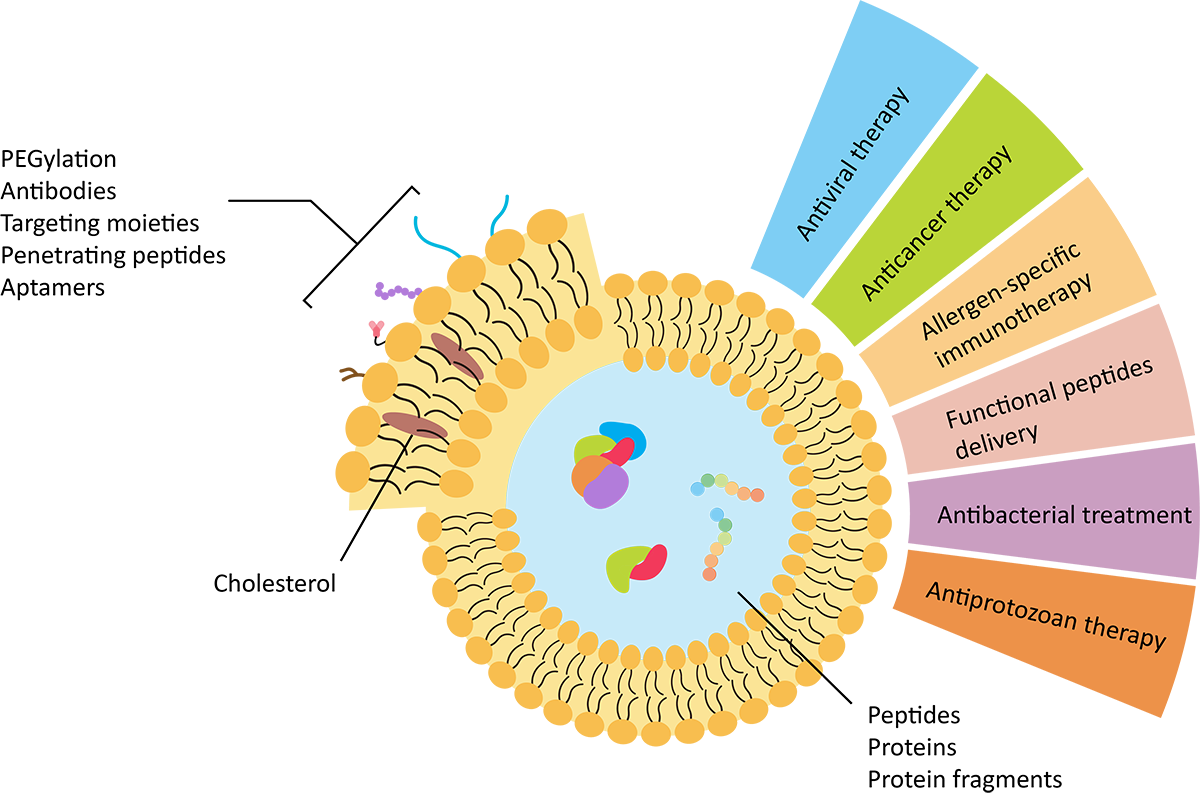Disease management through medication has entered a new era. More and more peptide/protein-based therapeutics have been produced through biotechnology processes for therapeutic use. Effective and safe delivery of therapeutic proteins is the key to commercial success.
Because of their high affinity, specificity, low toxicity and the ability to alter protein-protein interactions, proteins and peptides have a significant and rapidly expanding role as medicines. They are used in the treatment of a large number of diseases, including cancer, cardiovascular diseases, metabolic disorders, infectious diseases and neurodegenerative diseases. However, such biodrugs have several disadvantages that hinder their therapeutic application. These problems include pharmaceutical issues, such as instability during processing and storage, and biopharmaceutical problems, including poor permeability of non-injection delivery routes, lack of local targeting to retain the cargo at the site of action, and instability in biological fluids and poor intracellular delivery. One of the possible ways to overcome these delivery problems is to use a carrier system.
 Fig.1 Scheme of different protein delivery systems
Fig.1 Scheme of different protein delivery systems
 Fig.2 Applications of liposomal peptide and protein nanoformulations
Fig.2 Applications of liposomal peptide and protein nanoformulations
Various studies have shown that the efficiency of protein encapsulation by liposomes depends on the interaction between protein and lipid bilayers. By controlling the lipid composition of liposomes, or by increasing the concentration of liposomes, the encapsulation efficiency of protein/peptides can be increased to facilitate electrostatic interaction. At present, advanced platforms and mature technologies have successfully integrated peptides and proteins into liposomes, and applied them to different routes of drug delivery.
Creative Biolabs has strong and extensive expertise and years of experience in the fields of drug delivery and lipid biophysics.
In the development of liposome encapsulated protein/peptide, we can achieve the following:
If you have any needs for liposome formulation development, we are your best choice. For more details about our services, please directly contact us.
 For Research Use Only. Not For Clinical Use
For Research Use Only. Not For Clinical UseServices
Online Inquiry